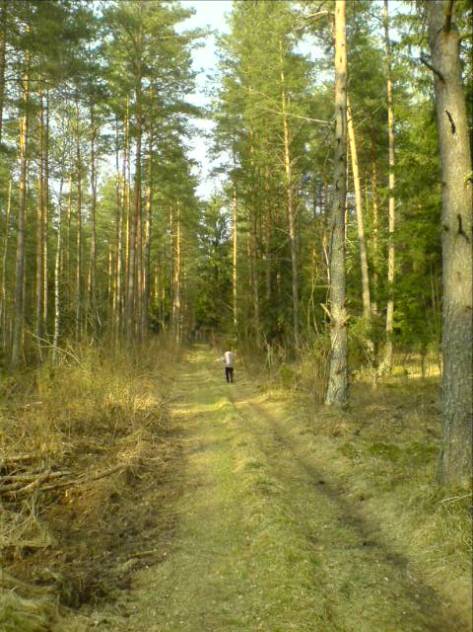Today spring has really began! Not on the 21th March, but in fact today. It has been sunny, optimistic, warm day. I could not go to the forest by bike, because I am still a little bit ill, so I had a car trip. I wanted to bring a joy and pleasure for my parents, so I taken them with myself and they did not regret.
All those intensive, fresh scents of the firs, pines and junipers, bright blue sky and sunbeams breaking through the trees, pale green of the forest with its trees, herbs and grasses around; mysterious and fabulous roads were phenomenally beautiful after the long, cold and rather grey than white winter – those winter even cross – country skiing was impossible, because lack of the snow.
Knyszynska forest – the place where we went – is one of my favourites forests in Podlasie and even in whole Poland. Although I live close to Bialowieska Forest/Bialowieza Forest – it is only 60 kilometres from Bialystok, I prefer Knyszynska Forest – it starts on the outskirts of Bialystok and ends almost on the border with Belarussia. Living in the downtown I go to Knyszynska Forest by bike only 20 minutes, and when I reach its edge, it looks more or less in this way (more or less, because the place which is visible in the picture below is much farther – about 20 – 25 kilometres from Bialystok – between Bialystok and Michalowo, close to the village named Majdan):
Bialowieza Forest is more gloomy and darker than Knyszynska Forest, less diverse in respect of landscape and types of the forest. Bialowieza Forest lies on the lowland, Knyszynska in some places on the lowland, in other ones on the small or the higher hills. In Bialowieza Forest dominate deciduous trees, in Knyszynska Forest evergreen ones. And Knyszynska is much more inspiring – if I only had more free time I could write fables…
I do apologize for the poor quality of above pictures.





